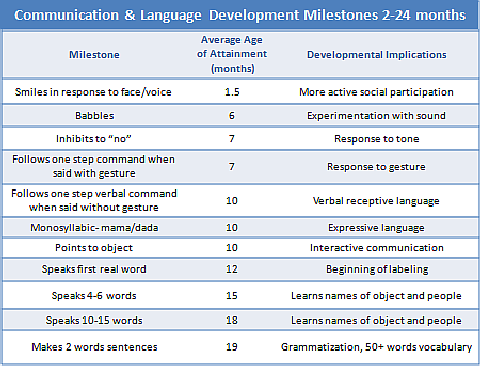The Secret to Giving Your Child the Best Preschool Education
Parents will always worry about the effects of peer pressure on their children. For example, can you remember a time when you dated someone who ate more than you did, and you ended up inadvertently overindulging? Researchers studying the relationship between eating habits and peer pressure have actually found that when you’re in a group, you subconsciously change your eating habits to match those of others in the group. Now, research has also shown that a similar effect applies to preschool education. Apparently, dieting and special education have more in common than you might think.
Speech-language pathologists (SLPs) have long known that a language-rich home lends itself to speech and language development in young children. This is why they urge parents to maintain a steady flow of conversation around babies, even before the youngsters begin to babble and say their first words. Now, two separate studies support the idea that a child’s preschool education is critical to his language development. More specifically, the other preschoolers around the child can have an impact on that child’s progress.
Placement with High-Achieving Preschoolers
The first study was conducted by researchers from Ohio State University and the University of Virginia. This preschool education study evaluated over 1,800 youngsters from more than 450 separate classrooms. The study participants were located in 11 different states in the U.S. At the beginning of the preschool year, the researchers evaluated the children’s receptive and expressive language skills. They repeated the assessments at the conclusion of the school year.
The results of the study revealed that the study participants increased their abilities to understand language and express themselves when they were placed with classmates who had more developed language skills than those of the study participants.
Andrew J. Mashburn, the lead researcher on the project, stated that, “These results also indicate that teachers can promote children’s language development by effectively managing children’s behavior, which creates an environment in which children feel comfortable to converse with and learn language from one another.”
Placement with Low-Achieving Preschoolers
The second study was conducted by researchers from Florida State University, Ohio State University, and the University of Virginia. Laura Justice was the lead researcher, but Andrew J. Mashburn, the researcher from the first preschool education study, also worked on this project.
This study included 338 children in 49 different preschool classrooms. The researchers evaluated the children’s language skills at the beginning of the school year, as well as toward the end. The youngsters’ language skills were tested in areas like grammar, vocabulary, and narration. The researchers also took the instructional quality of the classrooms into consideration.
At the conclusion of the study, Laura Justice revealed that low-achieving children who were placed with similarly low-achieving children typically showed a decline in language skills over the course of the year. Low-achieving children placed with average-achieving children improved their language skills. High-achieving children placed with low-achieving children did not appear to suffer adverse effects.
Laura Justice suggested that the results indicated a need to blend children of various backgrounds and experiences into classrooms to improve diversity. “(In the U.S.), we tend to cluster kids who have relatively low language skills in the same classrooms, and that is not good for their language development,” noted Justice.
Conclusions
So what does this mean for your child’s preschool education? For starters, the fact that he is enrolled in preschool means that he is already getting a solid foundation for his school years. When you plan your child’s Individualized Family Service Plan (IFSP) or Individualized Education Program (IEP) with the special education team, ask about the inclusivity of your child’s classroom. Even if your child is severely speech disordered or delayed, he may benefit from a collaborative style of speech therapy, as opposed to being placed in the school’s resources room for much of the day.
As well, seek out opportunities for your child to interact with his peers. Ask your local library if they offer playgroups and workshops geared toward young children. Network with other parents and establish frequent play dates. And remember to maintain a language-rich environment at home. It’s a good idea to set aside a certain time each day for reading, just like you set aside time each day for practice with Speech Buddies for articulation. You can also use family dinner time as an opportunity to encourage your child to answer questions and narrate stories about his day.


